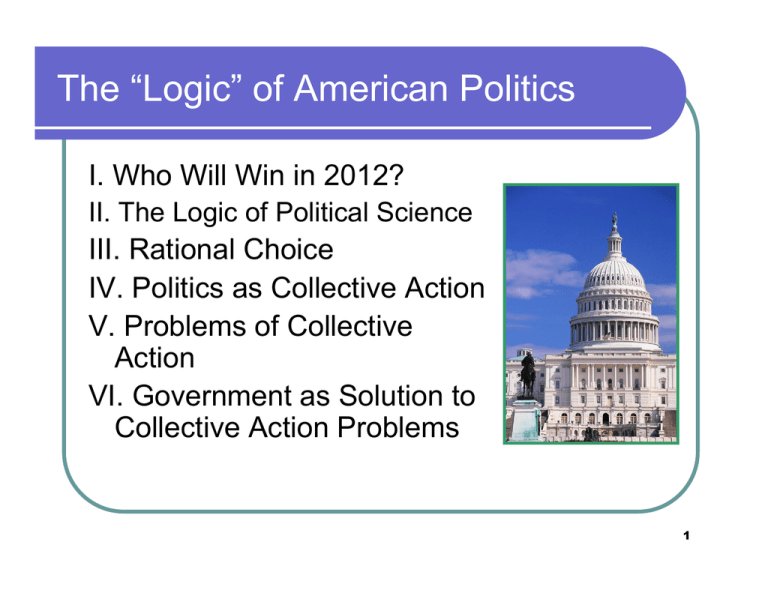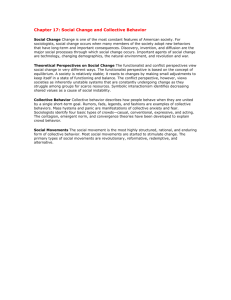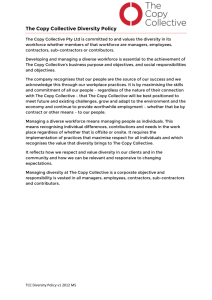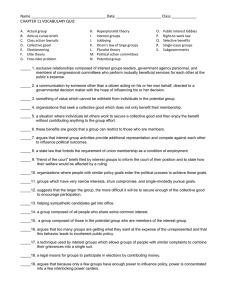The “Logic” of American Politics
advertisement

The “Logic” of American Politics I. Who Will Win in 2012? II. The Logic of Political Science III. Rational Choice IV. Politics as Collective Action V. Problems of Collective Action VI. Government as Solution to Collective Action Problems 1 I. Who Will Win in 2012? Q: Which candidate is more likely to win in 2012 and WHY? 2 a. The Logic of Political Science Start from an important QUESTION Move to an HYPOTHESIS Obama will win OR Romney will win because… “It’s the economy, stupid” Develop an EXPLANATION, which includes a DESCRIPTION of the key variables in play Combine all into a PREDICTION of outcome Who will win in 2012? Model of electoral behavior (in this race) Political Science as ‘science’ 3 I. Rational Choice Actors (preferences and choice) Institutions (context) Strategic Interaction Maximizing Preferences Interaction with other Actors Influence of Institutional Contexts 4 II. Politics as Collective Action Collective Action: Actions taken by a group to deal with some common problem. Politics: is the process through which individuals and groups reach decisions on common (or collective) actions. Constitutions: the set of rules prescribing the political process that must followed to reach and enforce collective agreements. Constitutions establish the rules between government and governed, and between different parts of the government (i.e., federal and state). Government: institutions created by the constitution and charged with making and enforcing collective agreements. 5 III. Problems of Collective Action Coordination Problems Prisoners’ Dilemma Lack of Trust Individual Interest v. Collective Interest Free Rider Problem Tragedy of the Commons Costs of Collective Action (Conformity and Transaction Costs) 6 The Prisoners’ Dilemma What is the best outcome for both players? What is the best outcome for each individually? What is the actual outcome of this game? Why? 7 IV. Government as a Means to Resolve Collective Action Problems Democracy: government by the people (demos = the people; kratos = authority or power) Representative Democracy (or Republican Government) Political Equality and Majority Rule (50% +1) Plurality Rule (most votes, even if >50%) Direct Democracy: government in which citizens come together to discuss and pass laws and select rulers. Representative Democracy: government that derives its power indirectly from the people, who elect (delegate) authority to those who govern; also called a republic Presidential v. Parliamentary Government 8 9




